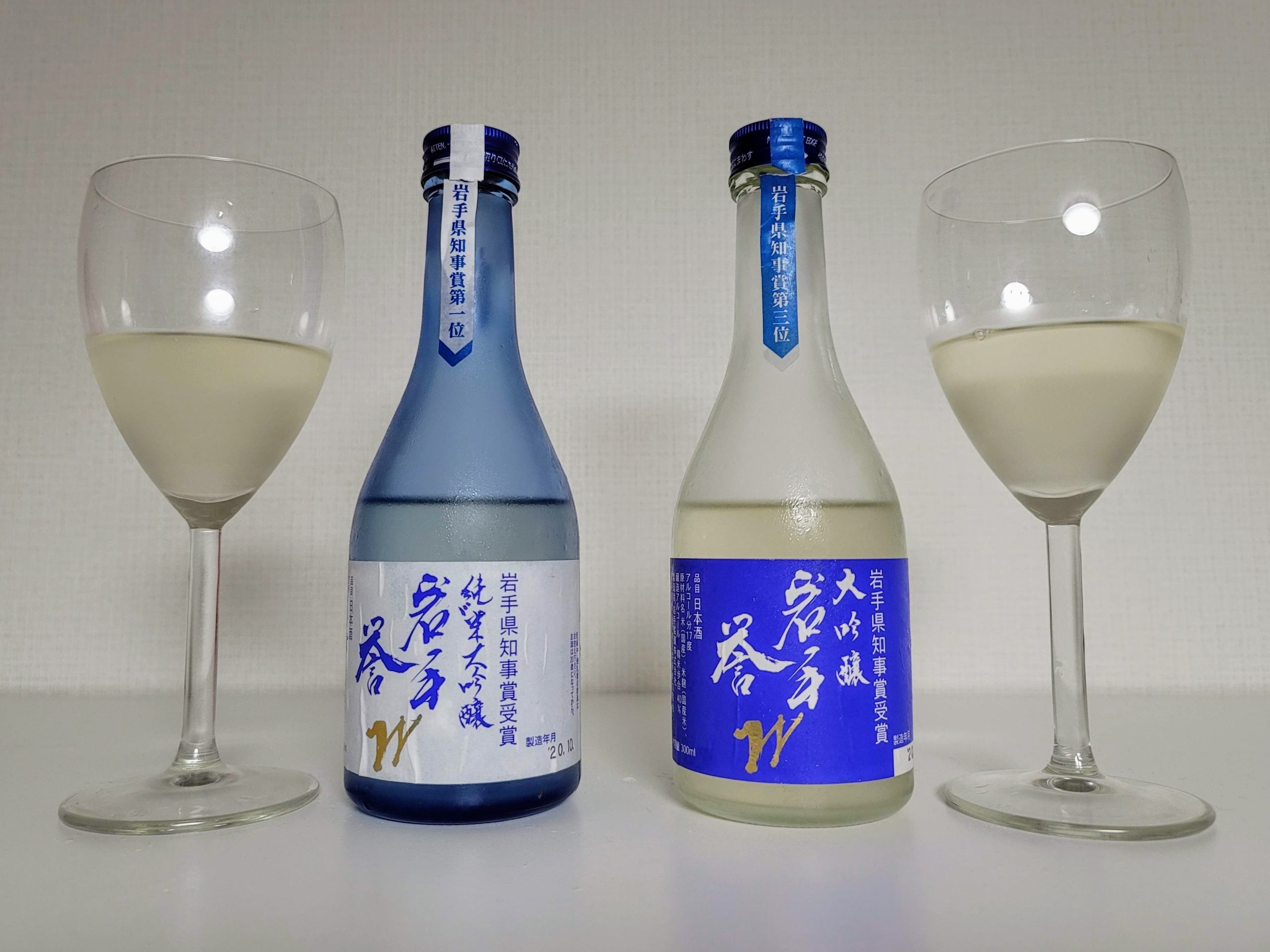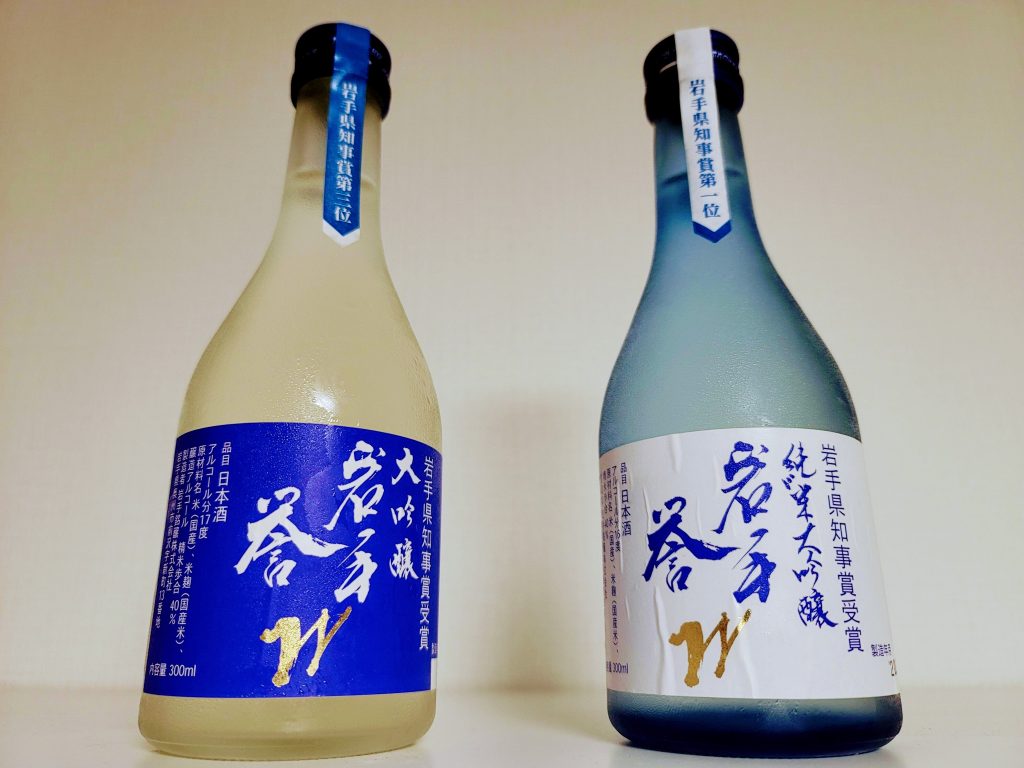
Sake Review: Iwate Meijo, Iwate Homare W awards
Iwate Meijo was created in 1955 from the merger of two sake breweries that had been operating since the early Taisho period. They are one of Iwate Prefecture’s most respected breweries, producing a wide range of different sake. Their most famous brand is Iwate Homare. Their sake has been awarded several medals in local and national competitions.
Iwate Meijo uses traditional brewing methods that have developed to best utilise the region’s cool climate. The company uses mainly locally grown rice, two noted varieties used in their portfolio being ‘Kame no o’ and ‘Miyamanishiki’. One interesting advancement in Iwate Prefecture over the last two decades has been the development of their own, proprietary rice, Yuinoka. Breeding began in 2002 and the rice was announced in 2012. It was bred for brewing Daiginjo grade sake and has good characteristics to facilitate this, such as having grains that are less likely to crack when polished to greater degrees. The resultant sake has a fragrant, clean, aroma with a lot of umami and a sweet, lingering finish. – all else being equal that is, and it rarely is in the world of sake!
The two bottles in this review are a special bottling of two of the brewery’s award-winning sake: Iwate Honmare ‘W’. The W is a classic Japanese play-on-words. ‘Double-u’ and ‘double’ are pronounced (almost) the same in Japanese, so ‘W’ is often used as a shorthand for double, in this case referring to the double recognition – 1st and 3rd prize in the Iwate Governor’s Sake Awards.
In these Iwate Honmare ‘W’ sake, Yuinoka rice has been paired with K1801 yeast, known for creating ginjo-ka aromas with less acidity – a yeast best suited for brewing daiginjo.
Both sake come in enticing frosted glass bottles – I really like the blue of the First Prize bottle.
Junmai Daiginjo Iwate Prefecture Governor’s Award 1st Prize
Rice polishing ratio: 40%
ABV: 16%
Rice: Yuinoka
Yeast: K1801
Nihonshudo (Sake Metre Value): -3
A medium strength aroma greets you as you stick your nose into the glass, delivering a fragrant bouquet of classic gingo-ka – melon, banana and pineapple – but tempered with some complexity and minerality, probably from the yuinoka rice.
We are well into daiginjo territory with this sake’s 40% polishing ratio. With a nihonshudo of -3 you would expect it to be sweeter on the palate than it is, but this is nicely offset by some acidity. Together they combine to deliver a well-balanced sake with an almost smoky mouthfeel and a surprising earthiness given the rice and yeast used. I can understand why ‘smoked foods’ is one of the recommended food pairings, but this sake works well with fish, especially grilled fish, too.
The finish is medium-long, in lovely contrast to the short finish of a classic tanrei karakuchi, leaving you to enjoy the complexity of the sake well after you’ve swallowed your mouthful.
This is a sake you can enjoy at a range of temperatures. I recommend room temperature or heated, which brings out more of the roughness.
Daiginjo Iwate Prefecture Governor’s Award 3rd Prize
Rice polishing ratio: 40%
ABV: 17%
Rice: Yuinoka
Yeast: K1801
Nihonshudo (Sake Metre Value): 0
Despite this winning the third prize, I actually preferred it out of the two. The addition of the brewing alcohol amplifies all of the elements of the junmai version, enhancing the impact of the highly polished yuinoka rice and the K1801 yeast which is perfect for brewing Daiginjo.
Everything is more pronounced in this sake compared to her first-prize winning sister, with a more fragrant aroma and a bigger, fuller flavour. The higher alcohol level (17% vs 16%) makes a difference, adding more body to the sake. The earthiness that hits you in the junmai now takes on a nutty note. It’s a little drier than the junmai variant, and this adds to the complexity. A highly immersive experience.
It might be a bit too flavourful for most meals, but it pairs well with a meat dish or curry.
Both of these sake bode well for the future of Iwate Meijo. Looking forward to more from this exciting craft brewery.

Iwate Meijo website: https://www.iwate-meijo.com/
Information about Iwate Meijo at Sakegeek: http://sakegeek.com/cm_post_breweries/iwate-meijo/




